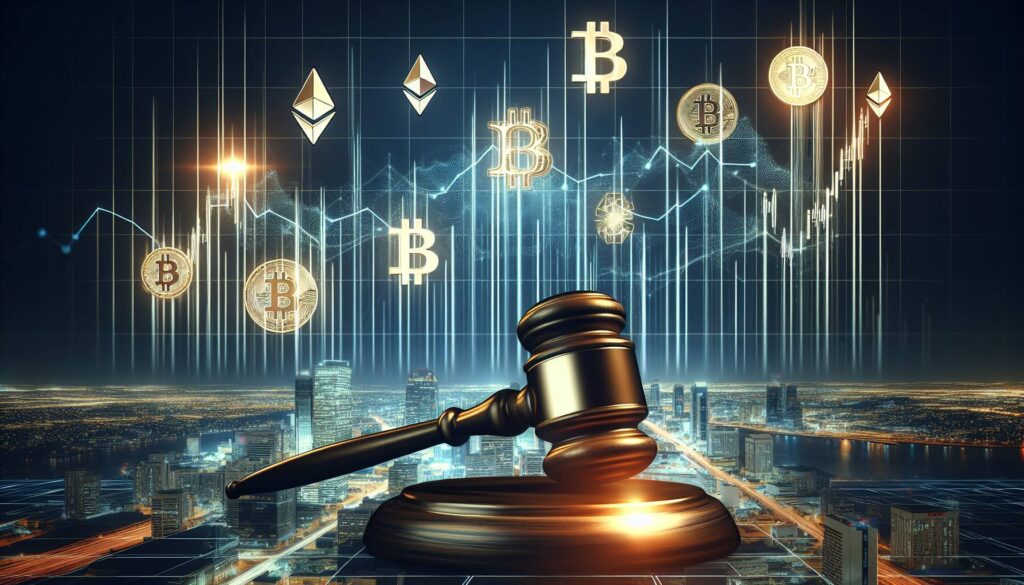The cryptocurrency industry is closely watching developments in Washington, as the Senate Banking Committee has recently voted on a pivotal nomination that could influence future regulatory frameworks. In a decision that split along party lines, the committee has approved the nomination of FDIC Acting Chair Travis Hill, forwarding it for a final vote in the Senate. This move signals potential shifts in oversight and governance that could impact digital currencies and the broader financial ecosystem.
“The role of the FDIC is crucial in shaping the regulatory landscape for cryptocurrencies, particularly as the market continues to evolve and mature,” commented an industry analyst.
Travis Hill’s appointment to the permanent chair position could bring a fresh perspective to the regulatory body, which plays a key role in maintaining stability within the banking system. This nomination underscores ongoing discussions around the intersection of traditional finance and emerging technologies, emphasizing the need for robust policies that address the unique challenges posed by cryptocurrencies.
As the Senate prepares for a final vote, stakeholders across the crypto space are gearing up to see how Hill’s confirmation might influence future regulatory decisions. The outcome could have far-reaching implications for how digital assets are treated and monitored within the financial system.

FDIC Acting Chair Nomination Update
The Senate Banking Committee has taken significant steps regarding the nomination of FDIC Acting Chair Travis Hill. Here are the key points:
- Vote Outcome: The committee voted along party lines to advance Hill’s nomination.
- Next Steps: The nomination will move to the wider Senate for a final vote.
- Importance of FDIC Role: The FDIC Chair plays a crucial role in banking regulation and financial stability.
- Political Implications: The party-line vote reflects current political divisions, which may affect banking policies.
- Impact on Consumers: Leadership at the FDIC can influence deposit insurance and protection for consumers.
Understanding this nomination process is vital as the FDIC’s leadership has direct implications for the banking system and consumers’ financial security.
FDIC Leadership Nomination Takes Center Stage in Senate Banking Committee Vote
The recent decision by the Senate Banking Committee to advance the nomination of FDIC Acting Chair Travis Hill showcases a significant moment in financial regulation, especially given the party-line voting pattern. This development comes at a time when banking oversight and reform are hot topics in Washington, making the role of the FDIC crucial as the sector navigates various challenges.
Comparatively, Hill’s nomination to lead the FDIC is set against a backdrop of intense scrutiny and scrutiny from various consumer advocacy groups. While supporters highlight Hill’s experience and commitment to upholding financial stability, critics argue that his ties to the previous administration may hinder a more progressive agenda aimed at protecting consumers and addressing systemic risks. This duality presents distinct competitive advantages and disadvantages for Hill’s nomination.
On one hand, Hill’s ascent could provide a sense of continuity within the FDIC, appealing to those who favor stability and gradual reform in a post-pandemic economy. On the other hand, this nomination could exacerbate tensions among financial reform advocates who are pushing for more aggressive action against predatory lending and banking practices that disproportionately affect vulnerable populations.
Ultimately, various stakeholders stand to benefit or face challenges depending on the outcome of the final Senate vote. Financial institutions, especially larger banks, may welcome Hill’s potential leadership style, which could favor regulatory stability. In contrast, consumer advocates and lower-income communities might find themselves at a disadvantage if Hill’s approach aligns more closely with laissez-faire banking practices, escalating existing inequalities in financial access and protections.

















